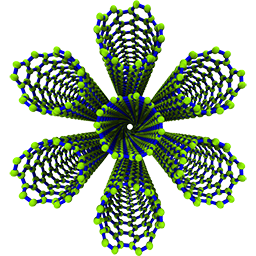Source code for sknano.generators.generator_configparser
# -*- coding: utf-8 -*-
"""
==============================================================================
Generator config parser (:mod:`sknano.generators.generator_configparser`)
==============================================================================
.. currentmodule:: sknano.generators.generator_configparser
"""
from __future__ import absolute_import, division, print_function, \
unicode_literals
from collections import OrderedDict
from configparser import ConfigParser
import importlib
from sknano.core import BaseClass, call_signature
__all__ = ['GeneratorConfigParser']
[docs]class GeneratorConfigParser(BaseClass):
"""Class for reading/writing ini config files."""
call_signature = call_signature.copy()
def __init__(self, cfgfile=None, structure=None, **kwargs):
super().__init__(**kwargs)
self.cfgfile = cfgfile
self.structure = structure
self.fmtstr = "{cfgfile!r}"
self.parser = ConfigParser()
self.config = OrderedDict()
if cfgfile is not None:
self._parse_config()
if structure is not None:
self._update_config()
def _parse_config(self):
parser = self.parser
parser.read(self.cfgfile)
generator_module = 'sknano.generators'
for generator_class in parser.sections():
# generator_module = parser[section]['generator_module']
parameters = parser[generator_class]['parameters']
# fname = '{}({})'.format(generator_class[:-len('Generator')],
# parameters)
# self.fnames.append(fname.replace(' ', ''))
# self.config.update({section: {'generator_class': generator_class,
# 'parameters': parameters}})
call_sig = \
self.call_signature.parseString(parameters, parseAll=True)[0]
try:
args, kwargs = call_sig
except ValueError:
args, kwargs = tuple(), call_sig[0]
generator = getattr(importlib.import_module(generator_module),
generator_class)(*args, **kwargs)
print(generator)
def _update_config(self):
if self.structure is not None:
parameter_dict = self.structure.todict()
for param, value in parameter_dict.items():
print('{} = {}'.format(param, value))
# def write(self, fp, space_around_delimiters=True):
# """Write an .ini-format representation of the configuration state.
# If `space_around_delimiters' is True (the default), delimiters
# between keys and values are surrounded by spaces.
# """
# if self.structure is not None:
# for k, v in
# # if space_around_delimiters:
# # d = " {} ".format(self._delimiters[0])
# else:
# d = self._delimiters[0]
# if self._defaults:
# self._write_section(fp, self.default_section,
# self._defaults.items(), d)
# for section in self._sections:
# self._write_section(fp, section,
# self._sections[section].items(), d)
# def _write_section(self, fp, section_name, section_items, delimiter):
# """Write a single section to the specified `fp'."""
# fp.write("[{}]\n".format(section_name))
# for key, value in section_items:
# value = self._interpolation.before_write(self, section_name, key,
# value)
# if value is not None or not self._allow_no_value:
# value = delimiter + str(value).replace('\n', '\n\t')
# else:
# value = ""
# fp.write("{}{}\n".format(key, value))
# fp.write("\n")
[docs] def todict(self):
"""Return :class:`~python:dict` of constructor parameters."""
return dict(cfgfile=self.cfgfile, structure=self.structure)
